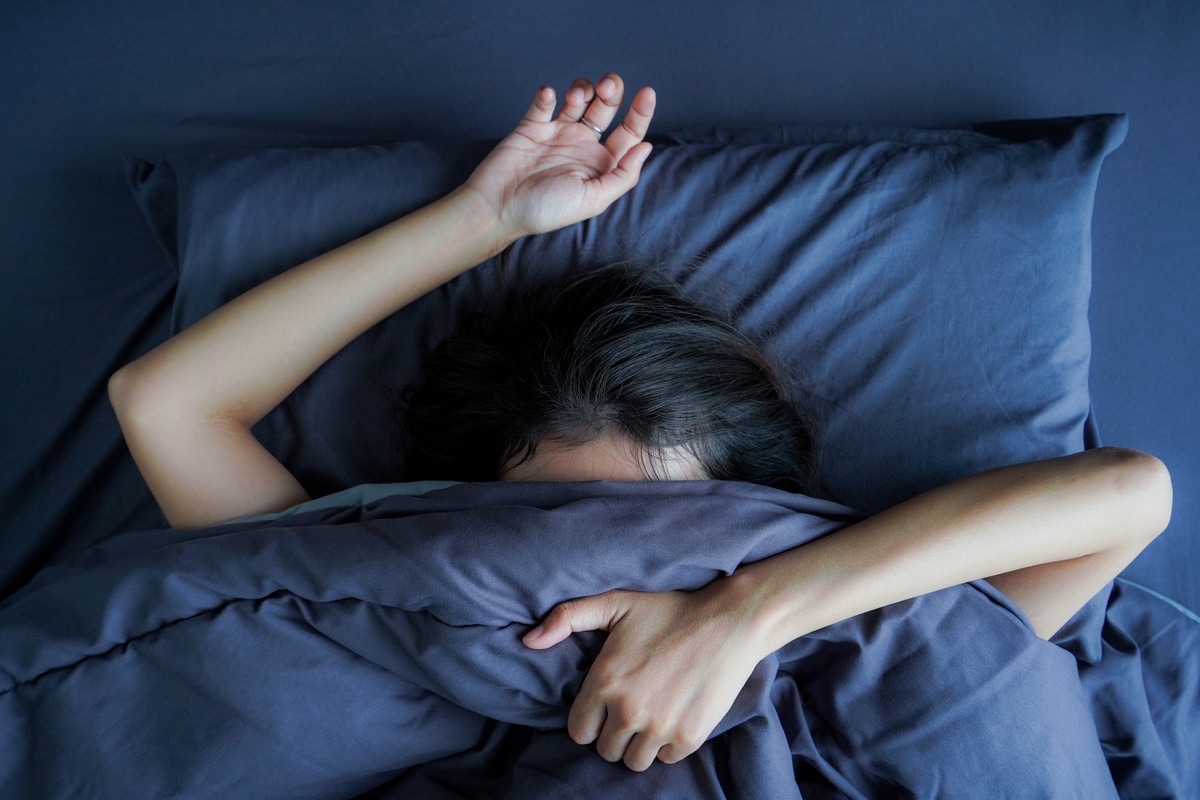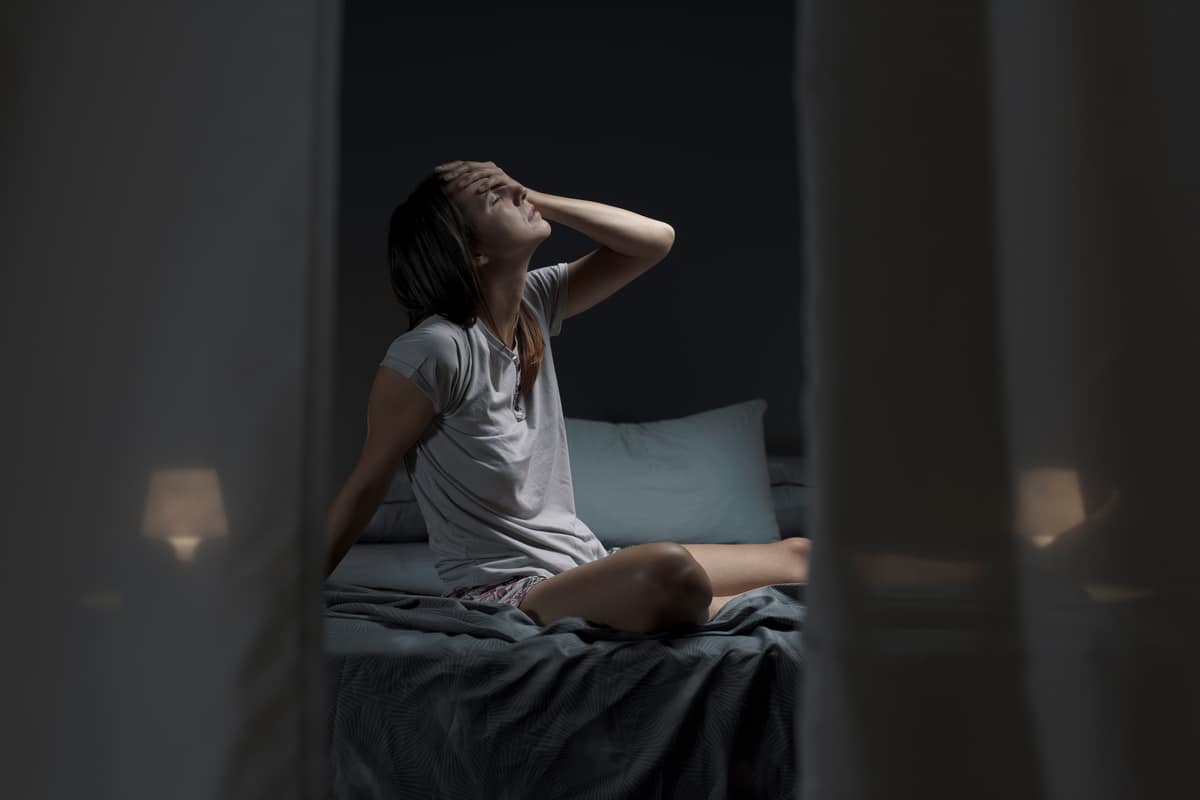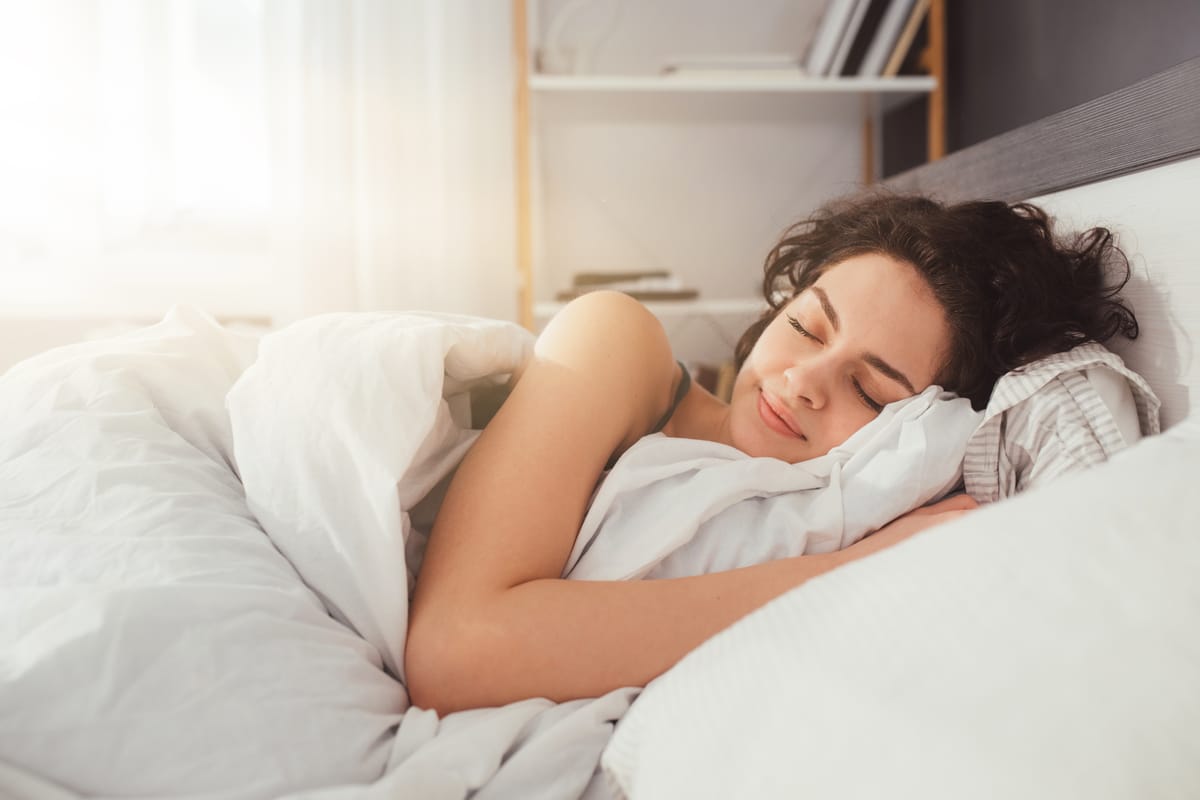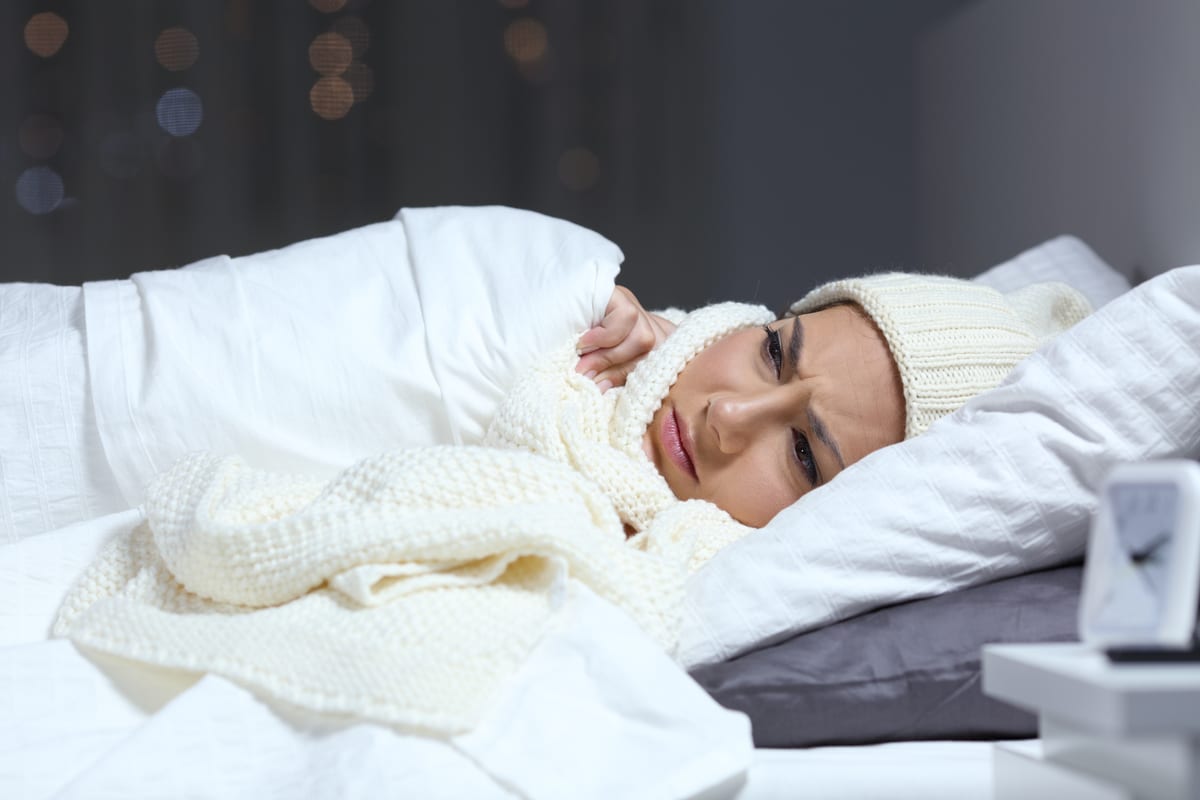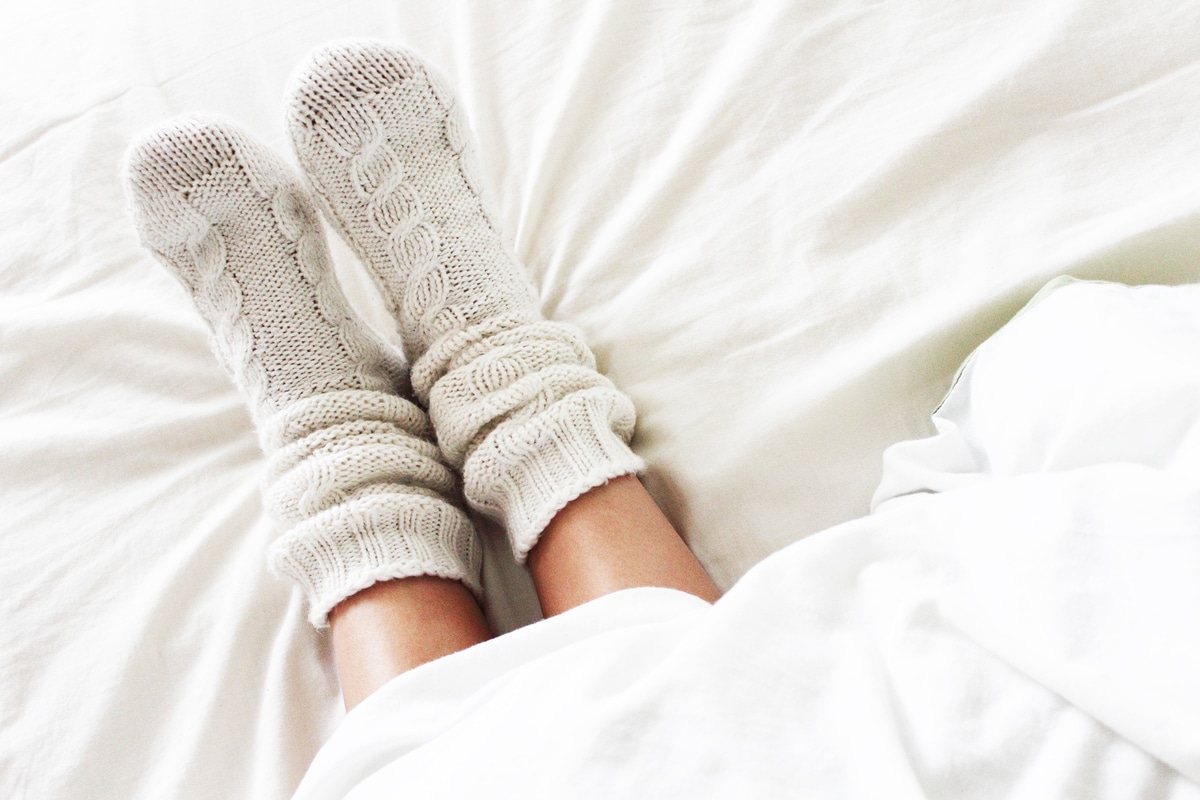
Sleep is just as crucial to your body as air, food, and water. If you don’t get enough of it, it can affect your mental health.
Unfortunately, many things can wake you from that much-needed slumber. Or worse, prevent you from getting back to sleep.
Chills are one of them. When muscles begin to quiver from the cold, even just a little, it can disrupt your sleep. Falling asleep with extra blankets on the bed is more likely to make you hot than keep you from getting cold.
So what can you do?
It may help to figure out why you’re getting cold, to begin with.
If frequent nighttime chills have you wondering, “Why do I get cold at night?” we have some answers.
Why Do I Get Cold at Night?
Sometimes you get cold at night just because the room temperature is cold. But you throw on an extra blanket and drop off back to sleep.
However, there is some science behind why you get cold at night even when your room temperature isn’t.
As bedtime approaches, your core body temperature naturally begins to drop. It drops a little more after you fall asleep. It is part of your natural wake-sleep cycle or circadian rhythm.
As your body temperature drops before and during sleep, your skin temperature increases. This is why you might feel hot when you first go to bed. It is just your body’s way of lowering your internal temperature those few degrees.
Throughout the night, your body regulates its temperature physically. You shiver to warm up if you’re too cold, and you sweat to cool down. Either of these can wake you up. However, your circadian rhythm is often not the reason you get cold at night to the point you wake up.
What Else Can Cause Coldness at Night?
Sometimes you wake up cold simply because you’ve kicked off the covers.
However, a medical reason could also be behind your shivers. If this is the case, you probably get cold both night and day, but it can make sleeping uncomfortable just the same.
Menopause
Many women going through menopause complain about their body temperature. Going from either burning hot to freezing cold, which can make it especially difficult to get a good night’s sleep.
If you’re a woman going through “the change,” a natural drop in oestrogen levels during menopause is likely behind your fluctuating temperature. A decrease in oestrogen makes your hypothalamus less efficient at regulating your body temperature, thus the sweats and the chills.
Fever
Even though a fever means your temperature has gone up, you can experience chills when you’re feverish.
Chills are nothing more than your body squeezing and relaxing muscles in an attempt to create heat to fight off infection.
Often with a fever, not much will warm you until your body is ready to give your muscles a break.
Medical Conditions
A few other medical conditions are known to cause chills and may have you wondering why you get cold at night.
If you have hypoglycemia, an underactive thyroid or anaemia, you may experience chills.
Hypoglycemia is when blood sugar drops to unsafe levels. An underactive thyroid means your thyroid is not producing enough hormones, similar to women in menopause. Anaemia is an iron deficiency.
How To Stop Feeling Cold at Night
If you know that you suffer from any of the conditions above, taking steps to correct or manage your symptoms can help prevent chills through the night and the day.
If you aren’t sure if you have a medical condition, a doctor’s visit and a few blood tests can often tell you.
Whether you have a “chilly” condition or not keeping you up at night, there are things you can do to create a more sleep-friendly environment.
Adjust Your Bedroom Temperature
While everyone’s ideal sleep temperature probably differs, determining yours can help create an environment conducive to a good night’s sleep.
According to the SleepCharity.org, “temperatures over 24°C (71°F) are likely to cause restlessness, while a cold room of about 12°C (53°F) will make it difficult to drop off.”
Give this temperature range a try and see if your sleep better.
Add a Little Insulation
You don’t just want to keep your room at a “sleep” temperature. You also want to keep it at a steady temperature.
If you have large windows in your bedroom, they can make your bedroom a little hotter in the summer and colder in the winter. This can cause a change in room temperature during the night.
Thick curtains can act as an insulator to keep the sun and the cold from changing your room temperature too much, and if you opt for blackout curtains, you’ll get the bonus of keeping your room darker, which should also help make it easier to fall asleep.
Change Your Bedding…
Quite often, night chills are a result of sweating.
Some fabrics make you too hot at night, and you sweat to cool down. But you get too cool, especially if you sleep with a fan blowing on you or window open.
Consider sheets made from fabric that won’t hold in so much heat during the warmer months.
In the colder months, switch back.
…And Your Pyjamas
What your wear to bed can make you get cold just as much as your bedding can.
Just like with sheets, pyjama fabrics can keep you cooler or make you hotter.
Dress accordingly and keep a pair of socks nearby for when you do get chilled.
Put on a Hat
There’s a reason people used to wear a nightcap to bed before we had central heat and air.
It prevented the loss of heat through the head. Find a comfortable winter hat to sleep in and pull it on on those nights you wake up cold to help you drift back to sleep.
The Bottom Line
Hopefully, you’re no longer wondering, “Why do I get cold at night?” and you have some ideas for keeping yourself warm enough to stay asleep.
But what if you’re cold when it’s time to go to bed? You likely won’t be able to fall asleep so easily.
There are a few tricks to try:
- Take a warm bath or shower. Just don’t make it too hot, or you’ll have just as hard of a time falling asleep.
- Go to bed with your socks on. Some people sleep better when their feet are warm.
- Don’t sleep with a fan blowing directly on you. If you get hot in the night and sweat, that fan can make you very cold.
Everyone should take steps to generate the ideal sleep environment.
You might find a new set of curtains or bedsheets that can make all the difference in keeping you from getting too cold, too hot, or just right.


